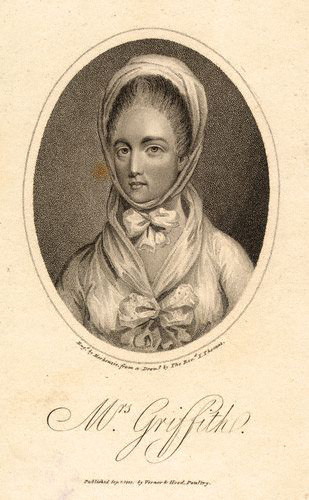On Tuesday the Dr Johnson Reading Circle sat down at their computers again to read The Times by Elizabeth Griffith. The first two acts had mostly dealt with setting up the characters, setting and theme. Principally we were introduced to Mr Woodley and his wife Lady Mary who are seriously low on funds, though Mary doesn’t know it. Their situation is not helped by Mr and Mrs Bromley who pressure the couple to spend more. The solution: make up with their rich, argumentative uncle William - but that doesn’t look very likely.
Now we’re all set up, it’s time for the fun to begin and in this instalment there’s lots to be had with Lady Mary’s ignorance of her position, Sir William’s bull-like attempts at match-making and a real exposure of the Bromleys’ two-facedness. A lot of these two acts are taken up by three characters I didn’t fully introduce in the first section: Louisa, related to the Woodleys and of marrying age; Counsellor Belford, Sir William’s friend who is not of marrying age and Colonel Mountfort, who loves Louisa and is loved back.
Sir William has decided his friend Belford and his relative Louisa would make a really good couple. He hasn’t asked them their opinions at all, nor does he consider the fact that Belford is old enough to be her father a real drawback. As far as he is concerned, they are both good people (i.e they do as he says) and so are a perfect match. With his customary tact, he brings up the notion of marriage with Belford, leading his hints closer to his proposed match and becoming increasingly peeved that he is not understood until he has spell out the idea in full. Like many things, the proposed marriage seems self-evident to Sir William, Belford said that Louisa would make someone a happy man and doesn’t Belford want to be one? When Belford suggests that maybe his being forty-eight and her eighteen might be a problem, Sir William simply tells him not to reveal his age. The more Belford tries to tell Sir William that although he is flattered by the suggestion, he doesn’t think it very fair on Louisa, the more Sir William takes it to mean that he accepts it. It’s a great scene, with one character railroading the other into accepting a hand in marriage that the woman in question hasn’t even offered.
In the next scene it is Louisa who is forced into accepting the proposal and Sir William leaves happy with his machinations for the day. She and her prospective husband meet and, without the influence of Sir William, manage to talk sensibly about their strange predicament. It’s clear that Belford wouldn’t mind being Louisa’s husband but doesn’t want to cause her distress and is content to be her ‘old friend’ - with an emphasis on old. He’ll even put in a good word for Colonel Mountfort.
Louisa appears to have two guardians, the older Sir William and the younger Mr Woodley. Colonel Mountfort succeeds in getting Mr Woodley’s permission to marry and is even the first to hear of Mr Woodley’s financial troubles. Now he has to get the elder. Sir William is in a good mood at first but certainly isn’t when the Colonel asks to marry Louisa. It seems clear to Sir William, the Colonel is just a soldier, he can get any woman so he should leave his Louisa alone. The two argue and Colonel Mountfort leaves. Then Belford comes in to reject the offer of Louisa’s hand and those two argue and Sir William storms out. For now, Louisa’s fate is uncertain (well, it’s not, the play’s a comedy, of course the lovers will get together, but how?)
Interspersed with these scenes, we see more of Lady Mary and Mrs Bromley, as well as Mr Woodley and Mr Bromley. The Bromleys are given more asides than they were in earlier scenes, allowing them to show their untrustworthiness more explicitly. Both have been encouraging their Woodley to spent exorbitant amounts of money but now Mr Bromley finds out the Woodleys are running out of it, he realizes it’s time to make one last hit before they move on to someone else.
In a little aside, I find it interesting that Mr Bromley’s first name is Robert and he frequently calls himself ‘Honest Bob’. Despite it being many years after the Walpole administration, it still seems that the name Bob indicates a money grabbing and devious character.
In the last scene of the fourth act Bromley and his wife talk privately for the first time. He wants to cash in and sue the Woodleys for the eye-watering sum of seven thousand pounds. What’s more, he considers it a fair exchange for keeping the foolish couple company and introducing them to the ‘best’ people. Mrs Woodley wants to wait till after the big ‘do’ the women have been preparing for but she’s placated by the gift of the earrings which were passed about so much in the first two acts. The pair prepare to make their score, muttering asides about their dislike for each other and twirling their respective moustaches. We are set up for the big event and a number of large confrontations. It should be a dramatic finale.



No comments:
Post a Comment